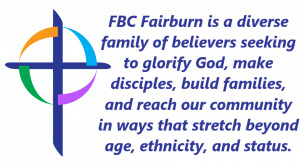Few topics bring Christians to a standstill the way holiness does. It really doesn’t have to be that way, but we will often balk at the conversation. There is no certainty in our voice about what it means to be holy. I can picture it with you. The grandfather appearance of God in His glistening white robe, long white hair, and Merlin-esque white beard with a chorus of winged babies toting harps playing the tranquil sounds of holy music. How close am I? Or maybe we hear holiness and we think of the Apostles and conflate the sinlessness of Jesus to these pioneers of the church and believe we cannot be like them, so we stammer and stutter about a topic that our world so desperately needs to see carried out in real time.
The honest truth is that it is hard to come up with a list of terms to throw out to the Church that make us as self-aware of our own shortcomings as does the word “holiness”. I suggest that this is precisely why a book like JC Ryle’s work Holiness: Its Nature, Hindrances, Difficulties, and Roots has stood the test of time and is as vitally important today as it was when written in 1879. We know the command of God, “You shall be holy, for I the Lord your God am holy” (Lev. 19.2)[1] and Peter’s reiteration in 1 Peter 1.16. I do not want to downplay the significance of this. Our confusion on holiness lies in the reality that we have shied away from making God the standard.
 So, how do we address the topic of holiness? As Ryle states it, “Wrong views about holiness are generally traceable to wrong views about human corruption…If a man does not realize the dangerous nature of his soul’s disease, you cannot wonder if he is content with false or imperfect remedies. I believe that one of the chief wants of the Church in the nineteenth century has been, and is, clearer, fuller teaching about sin.”[2] Let’s allow that to sink in or just a little bit. We do not understand holiness because we have been negligent in our awareness of and attitude toward sin. This is an idea we discussed in the Jerry Bridges book Respectable Sins. This is very old fashioned, I am aware. It is not politically correct to call someone’s “lifestyle choices” what they truly are: rebellion against a holy God. This is why the Church of Jesus Christ MUST grasp the concept of sin in it fullness. Even in 1877, Ryle states it as an old way of operating: “We must simply repent and do our first works We mut return to first principles. We must go back to the ‘old paths’ (Jer. 6.16). We must sit down humbly in the presence of God, look the whole subject in the face, examine clearly what the Lord Jesus calls sin, and what the Lord Jesus calls ‘doing His will.’”[3]
So, how do we address the topic of holiness? As Ryle states it, “Wrong views about holiness are generally traceable to wrong views about human corruption…If a man does not realize the dangerous nature of his soul’s disease, you cannot wonder if he is content with false or imperfect remedies. I believe that one of the chief wants of the Church in the nineteenth century has been, and is, clearer, fuller teaching about sin.”[2] Let’s allow that to sink in or just a little bit. We do not understand holiness because we have been negligent in our awareness of and attitude toward sin. This is an idea we discussed in the Jerry Bridges book Respectable Sins. This is very old fashioned, I am aware. It is not politically correct to call someone’s “lifestyle choices” what they truly are: rebellion against a holy God. This is why the Church of Jesus Christ MUST grasp the concept of sin in it fullness. Even in 1877, Ryle states it as an old way of operating: “We must simply repent and do our first works We mut return to first principles. We must go back to the ‘old paths’ (Jer. 6.16). We must sit down humbly in the presence of God, look the whole subject in the face, examine clearly what the Lord Jesus calls sin, and what the Lord Jesus calls ‘doing His will.’”[3]
Part of our endeavor on this Summer Reading Plan has been for me to share with you some books that have been instrumental in my life and practice as a follower of Christ. Honestly, some of these entries have been approached more as a book review than an actual look into why I have recommended this work. I first read Holiness as part of my Christian Ethics class at Southeastern Baptist Theological Seminary. I reread it in my first “real job” out of seminary alongside one of the men in the church. As I have taken a summary view in the past few days, I have been reminded of the weight and gravity of this book, specifically in the realm of sanctification. This comprises the second chapter of Ryle’s work and could be one of the best writings on the subject of sanctification that I have come across.
The word “sanctify” means “to make holy”, so we look at sanctification as the process by which we are made holy.[4] Ryle spends a great deal of time encouraging the saints of God to be exactly that: “saints”, or “a sanctified man.”[5] He expresses a great concern for our lack of holiness because we are content with life as it is, with no help or presence of the Holy Spirit at work in us. “Sanctification is that inward spiritual work with the Lord Jesus Christ works in a man by the Holy Ghost, when He calls him to be a true believer. He not only washes us from sins in His own blood, but He also separates him from his natural love of sin and the world, puts a new principle in his heart, and makes him practically godly in life.”[6] This is a demonstration of the way that God works His holiness in us and we apply His holiness to our every day lives. But why is this important?
One of my favorite narratives in Scripture is from the book of Acts in chapter 19 when Paul arrives in Ephesus for the first time. His very first question to the believers concerned the Holy Spirit asking, “Did you receive the Holy Spirit when you believed?” (Acts 19.2).[7] This is significant because, as Paul goes on to explain, our faith in Christ is made possible and sealed by the Holy Spirit. Our hope for being made holy rests in the presence of the Holy Spirit in our lives and the lack of sanctification apparent in us is a signal that we may actually not be in Christ. I love this statement from Ryle concerning the importance of sanctification in our lives: “The faith which has not a sanctifying influence on the character is no better than the faith of devils. It is a dead faith because it is alone…where there is no sanctification of life, there is no real faith in Christ.”[8]
Let me encourage you with this: God did not save you from your sin to leave you alone. God saved you from your sin in order that He may make you holy, as He is holy. Jesus came “not only to deliver [you] from the guilt of [your] sins by His atoning death, but from the dominion of [your] sins by placing in [your] heart the Holy Spirit; not only to justify [you], but to sanctify [you].”[9] I want to be holy because God is holy. I want to understand sin because God gave me Jesus to put an end to my sin. I want the same for you. Maybe you want to know more. Grab this book and study it. Your growth in Christ will be exponential!
This book is available on Amazon: https://tinyurl.com/yxgxzb4v

[1] Unless otherwise noted, all Scripture quotations are from the New American Standard Bible ©1995 The Lockman Foundation.
[2] JC Ryle, Holiness: Its Nature, Hindrances, Difficulties, and Roots, Nolan edition (Moscow, ID: Charles Nolan Publishers, 2001), 1. Ryle’s suggestion that we start with sin may come as a surprise to the modern ear. Many of us are familiar with the practice of the US Treasury to train their agents to spot counterfeits by studying what is true. This would make many of us prone to believe that we must start with the holy nature of God to understand holiness and then move to vileness of sin. Ryle’s starting point is rooted in the holiness of God as we cannot understand sin apart from Who God is. However, I prefer Ryle’s point of departure for the simple fact that our society has completely diluted and, in many cases, muted the concept of sin such that we do not even recognize it in the Church. A thorough grasp of sin will drive us to question why this is wrong and, in so doing, place us at the feet of our holy God.
[3] Ryle, 16.
[4] Gerhard Kittel, ed., “agiasmos,” in A – G,, vol. 1 of Theological Dictionary of the New Testament (Grand Rapids, MI: Eerdmans Publishing, 1976), 113. It must be noted that sanctification is by its very nature a synergistic process, meaning we cannot make ourselves holy alone. Kittel states that “the operation of _agiasmos can be accomplished only by a holy person, so that in the case of self-sanctifying it is always assumed that it is accomplished on the basis of the state of sanctification attained in the atonement.” We are to work out our salvation with fear and trembling (Philippians 2.12) on the basis of God’s continued work in us through Jesus Christ.
[5] Ryle, 18.
[6] Ryle, 19.
[7] Scripture taken from the New Living Translation ©2015 Tyndale House Foundation.
[8] Ryle, 21.
[9] Ryle, 20, italics in original.
